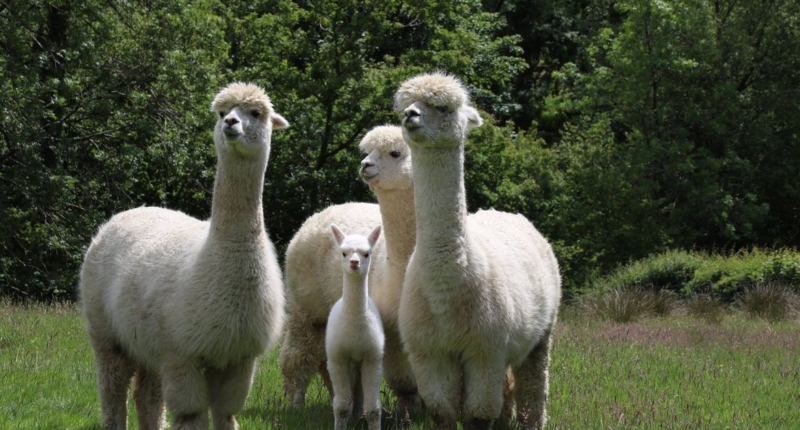Scientists from Aberystwyth University are researching whether grazing alpacas alongside other animals could help farmers tackle climate change. The new research project will explore the efficiency and environmental benefits of grazing different species together, such as sheep, goats, and alpacas. The study will focus on the unexplored potential of grazing sheep with less common species and related scope to improve pasture use efficiency and tackle climate change. The research project is funded by the AberDoc Scholarship and Pwllpeiran Upland Research Centre Funding.
Grazing Alpacas Could Help UK Farmers Tackle Climate Change
Researchers from Aberystwyth University are investigating the potential for grazing alpacas to help farmers in the UK combat climate change. The animals, which are native to South America, have not been fully explored as potential conservation grazers. However, scientists are now examining whether grazing alpacas alongside sheep, goats, and other animals could increase efficiency and offer environmental benefits.
The project builds on previous research, which demonstrated that mixed grazing of cattle and sheep improved animal health and lamb growth rates while reducing greenhouse gas emissions. However, as cattle numbers in the uplands have declined, researchers are now exploring alternative species.
According to Professor Mariecia Fraser, from Aberystwyth University’s Institute of Biological, Environmental and Rural Sciences (IBERS), “Alpacas have been overlooked as potential conservation grazers. This project is looking at new ways of grazing these animals and how they could help tackle climate change. It fits perfectly with the main research priority here at IBERS in Aberystwyth to reduce agricultural greenhouse gas emissions and help achieve net zero targets.”
Alpacas may offer environmental benefits because they eat invasive species that are abundant in the Welsh uplands, including Molinia, which can be detrimental to biodiversity. This removal of invasive species can also create more food sources for sheep. Additionally, the husbandry and infrastructure requirements of alpacas are similar to those of sheep, making it relatively easy to adapt current upland farming systems.
The study will explore the potential for grazing sheep with less common species, such as alpacas and goats, and the related scope to improve pasture use efficiency and tackle climate change. Alpacas, like cattle, have different grazing habits to sheep, so the researchers will gather data on the comparative digestive efficiency of the different species on various forages and monitor their methane emissions. Grazing trials are set to take place in the spring and summer of 2023 and 2024.
As agricultural support payments shift towards conservation management, there may be an opportunity to include these alternative livestock species in future funding schemes. The project is funded by the AberDoc Scholarship and Pwllpeiran Upland Research Centre Funding.
Don’t miss interesting posts on Famousbio










